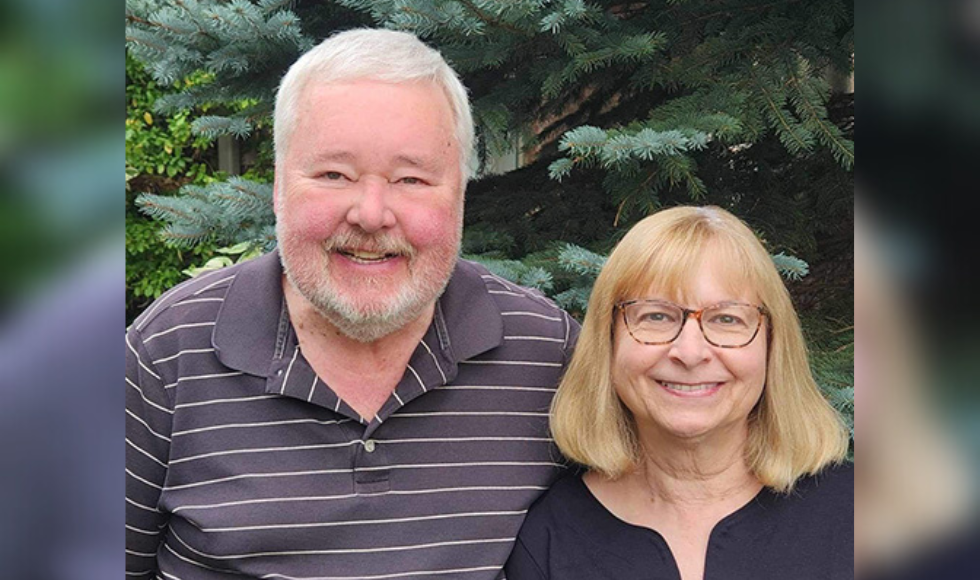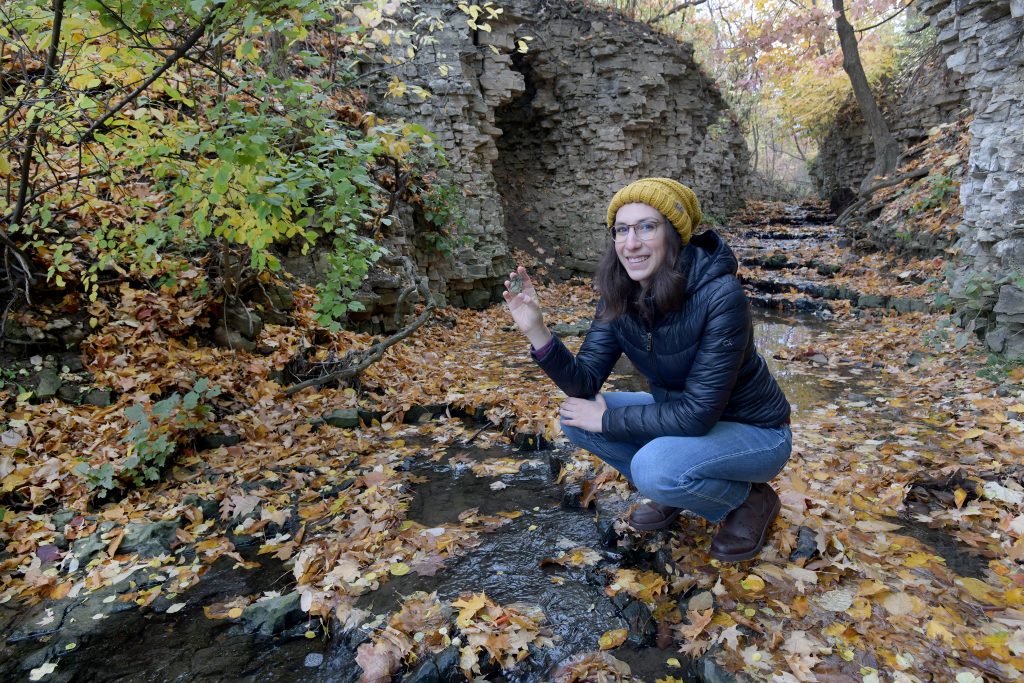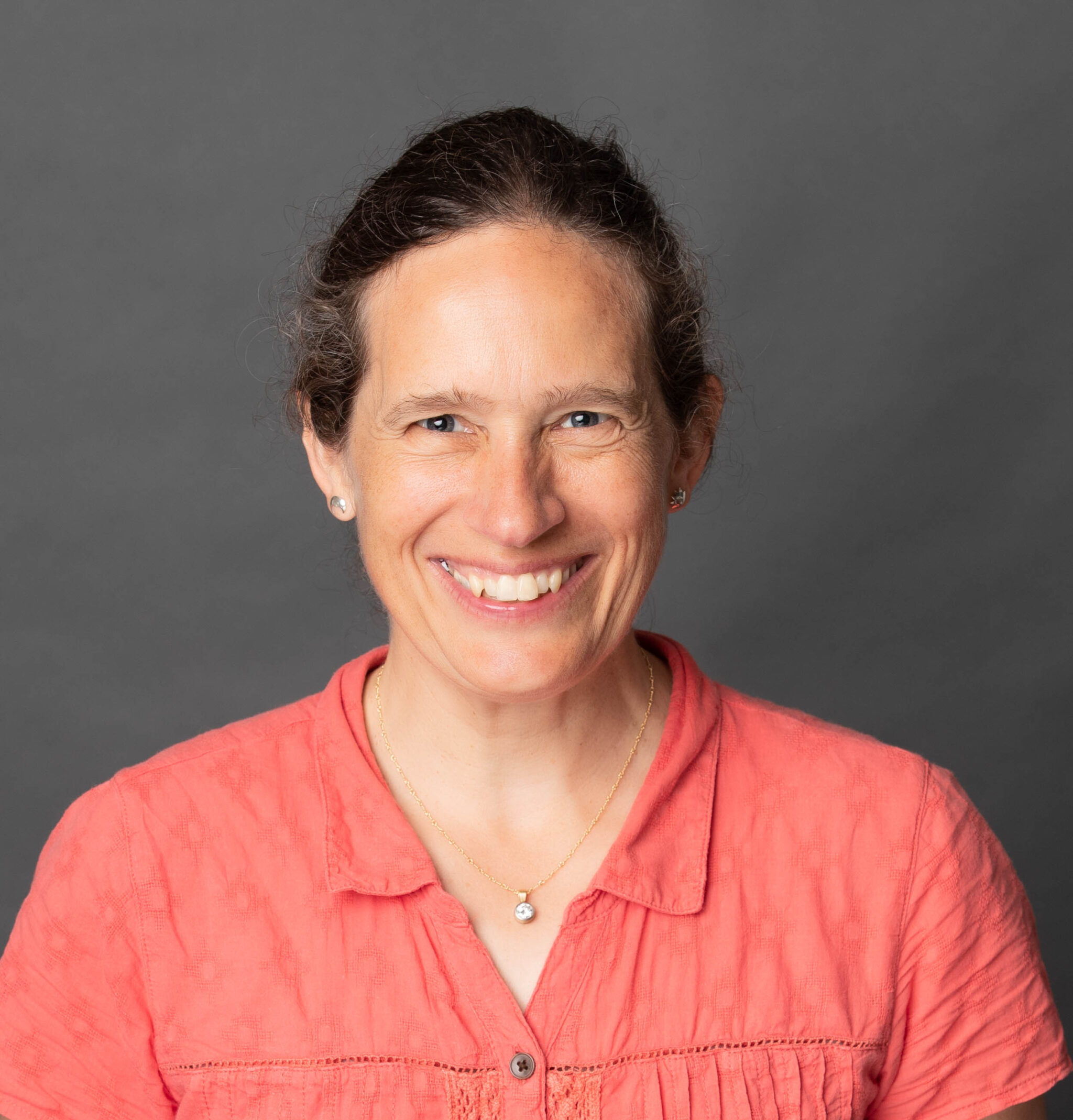McMaster alumni investment reinforces importance of river science

By Peter Rukavina
Streams and rivers are among the most valuable lifelines on our planet.
Like veins in a body or roads on a map, ecosystems are dependent on the integral resources these bodies of water provide. Yet, despite the wealth of resources they provide, streams and rivers are vulnerable, and human intervention is imperative for them to remain a lifeline.
McMaster alumni and philanthropists Brad Fairley ’79 and Margaret Gadsby ’78 know the importance of advancing research that helps strengthen and steward our rivers and streams.
 In 2020, they decided to support a priority research chair dedicated to river formation and restoration research in the ecologically vital and sensitive region of Hamilton and Dundas. Following an international search, Assistant Professor Elli Papangelakis was appointed the inaugural Fairley Gadsby Research Chair in Fluvial Geomorphology in the Faculty of Science’s School of Earth, Environment and Society (SEES).
In 2020, they decided to support a priority research chair dedicated to river formation and restoration research in the ecologically vital and sensitive region of Hamilton and Dundas. Following an international search, Assistant Professor Elli Papangelakis was appointed the inaugural Fairley Gadsby Research Chair in Fluvial Geomorphology in the Faculty of Science’s School of Earth, Environment and Society (SEES).
Fluvial geomorphology, the study of river formation, asks simple, yet crucial questions that help us understand our environment. How do rivers move water and sediment? How do the physical forms of rivers affect aquatic habitats? How do rivers evolve in response to human activities and climate change?
Brad, a national leader in stream restoration, has been answering these questions for more than 35 years. After completing over 100 stream restoration projects across North America, he has turned his attention to improving the quality of stream restoration work in Canada. As a result, he and Margaret invested in McMaster’s expertise and capacity to conduct integral research and educate the next generation of environmental scientists.
“As the world continues to develop and urbanize, we cannot neglect the health of streams, rivers and other waterways that provide vital resources to societies and aquatic ecosystems,” says Brad, Director of river restoration firm 5 Smooth Stones Restoration (Canada).
“We established this research chair with the goal of recruiting a talented researcher to an important ecological region in Southern Ontario. We are proud of the work Elli has accomplished in her first year and the lessons she is sharing with young scientists who have been tasked to solve countless environmental issues.”
In addition to the research capacity this chair offers, the students studying under Elli will play a significant role in McMaster’s push for environmental resilience. Margaret, a long-time leader in global food production and agricultural biotechnology who spent over 30 years in the agribusiness industry, says the strength will come from many groups working towards a unified goal.
“In order to make our ecosystems and environments more resilient, experts, students and community scientists must come together with a shared vision,” says Margaret, who volunteers with the Faculty of Science as a Dean’s External Advisory Board member. “With fluvial geomorphology research at the helm, Brad and I are confident a diverse and extensive group of experts at McMaster can facilitate the development of restoration plans to enhance the resilience of vulnerable environments.”
Through their philanthropy, Brad and Margaret are amplifying numerous McMaster priorities. The research chair advances the university’s sustainability strategy, a commitment to protect ecologically sensitive lands and McMaster’s commitment to supporting 17 United Nations Sustainable Development Goals (SDGs). Fluvial geomorphology expertise is integrated with three specific goals: providing clean water and sanitation, climate action and supporting life below water.
“In her first year as the Fairley Gadsby Research Chair in Fluvial Geomorphology, Dr. Papangelakis has made tremendous progress and inspired students to pursue research connected to improving the health of our local rivers and streams,” says McMaster Science Dean Maureen MacDonald. “As we mark World Rivers Day, I would like to thank Brad and Margaret for their generosity and for amplifying McMaster’s commitment to environmental health, stewardship and resilience.”
Professor Bruce Newbold, the Faculty of Science’s associate dean of graduate studies and the former director of SEES, says Papangelakis’ expertise bolsters McMaster’s contributions to river and stream research.
“The Fairley Gadsby Research Chair in Fluvial Geomorphology has strengthened SEES’ commitment and expertise in the natural environment,” says Bruce. “Watersheds face unrelenting threats from pollution, urbanization, climate change and more. With the support of Dr. Papangelakis and her students, McMaster can play an important role in stream restoration in our communities and improve the quality of life for our citizens and ecosystems.”
Elli, who joined McMaster in 2022, has emphasized the need to bridge the gap between science and practice in river management and restoration. Elli’s students share her determination to bring actionable river science to the public.
Shania Ramharrack-Maharaj ’22, an integrated science graduate, spent her fourth year studying stream restoration science following a desire to study in a field where she could pursue impactful research.
“Fluvial geomorphology is an amazing field of research that isn’t well known,” says Shania, who transferred from physics to environmental sciences to join Elli’s research group in 2022. “Understandably, emissions have been the biggest topic of conversation around climate change. However, rivers affect everything. Although most exist out of sight, especially in urban areas, that is all the more reason for the public to urge their protection and restoration.”
Read the full Daily News story here.
Appointments, Faculty, Research excellenceRelated News
News Listing

Prof. Deidre Haskell appointed Director of the Fields Institute for Research in Mathematical Sciences
Appointments, Faculty
December 12, 2024

Moment Mentor Memento podcast ep. 14 – Baby Lab’s Gabriel Xiao
Faculty, Podcast, Research excellence
December 5, 2024

